#where its your passion for criminal psychology. where is your OBSESSION . who ARE you
Text
for how bad killing eve got the books are infinitely worse.
#youve gotta believe me phoebe walker bridge worked miracles on that source material. jesus christ.#the story is dogshit bc there are no stakes. it is literally just implied cat and mouse between eve and oxana#implied as in the book will just SAY theyre chasing after each other. and TELL you they feel anything.#in reality the characters do not interract do not acknowledge the other and are literally just doing their jobs the whole time#no b plot . just villainelle kills someone > eve investigates while villainelle kills someone else > eve investigates whi#the first book also just immediately dived into ALL of oxanas backstory. so its like. we dont even get to discover WITH eve.#we just get it handed to us through dream and nostalgia and flashback exposition .#and then eve just magically figure out who she is based on sheer fucking divine visions or some shit.#like she gets told the name of a perfume and just INSTANTLY knows thats villainelles callname.#and thats before we even talk about the male gaze writing of lesbian sex scenes. which are certainly male gaze writings of lesbian sex .#but seriously theres no Konstantin plot#no real niko drama other than the stress eves work puts on thei relationship#no caroline. shes just not even a character. her son isnt a character. her son doesnt die.#eves coworker gets murdered and im convinced she didnt even care bc her divine spidey sense immediately prompts her to say some shit like#'its villainelle sending me a message'#girl what#how tf . can i see you do any research . can i witness you do any work .#where its your passion for criminal psychology. where is your OBSESSION . who ARE you#they are truly both just little dolls luke jennings put in a lesbian fantasy world. theyre not anything. tbeyre not interesting .#i hate them actually. theyre so fucking boring it grates on me.#whatt he FUCK did phoebe walker bridge see in this shit man . oh my god.#killing eve#code villainelle
10 notes
·
View notes
Text
BL Recommendation: Lost in the Cloud (Lezhin Comics)
Manhwa: Lost in the Cloud
Status: Ongoing
Source: Lezhin Comics, www.lezhinus.com/en/comic/cloud_en
Genre: BL / Shounen-Ai
Tags: Psychological; Manipulative; High School; Drama; Blackmail
Synopsis:
Skylar has a secret hobby - taking photos of his crush, Chan-il. But when Cirrus stumbles upon Skylar's cloud storage with its impressive collection of Chan-il's photos, things escalate pretty quickly. At first confident his secret is safe with Cirrus, Skylar continuously finds himself in compromising situations, making him question Cirrus' true motives...
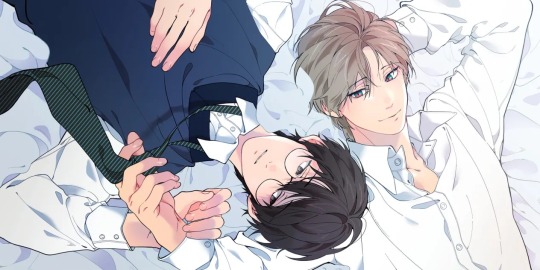
Thoughts:
During the <Painter of the Night> hiatus, I started reading a number of new BL to keep me entertained, and that’s when I discovered <Lost in the Cloud>.
I am OBSESSED with this manhwa!!! The series, which currently has 27 chapters released in English and 33 in Korean, has quickly become my favorite BL alongside POTN, which is saying A LOT because I am super picky about what I read.
The artwork is simply stunning and the story is really intriguing. You start off thinking it’s going to be just an innocent school crush but the plot is waaaay darker. The two main characters in particular are so complex and are not quite what they seem...
On the surface Skylar seems like your average high-school student. Just a sweet, shy boy with a passion for photography. However, he is actually an emotionally scarred young man struggling to deal with a traumatic past event from his time at middle school.
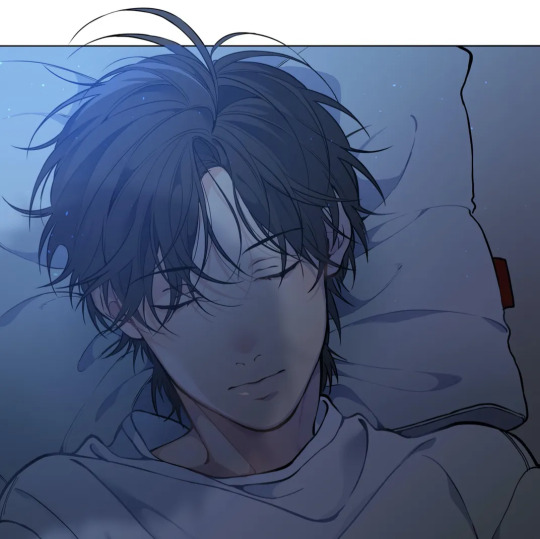

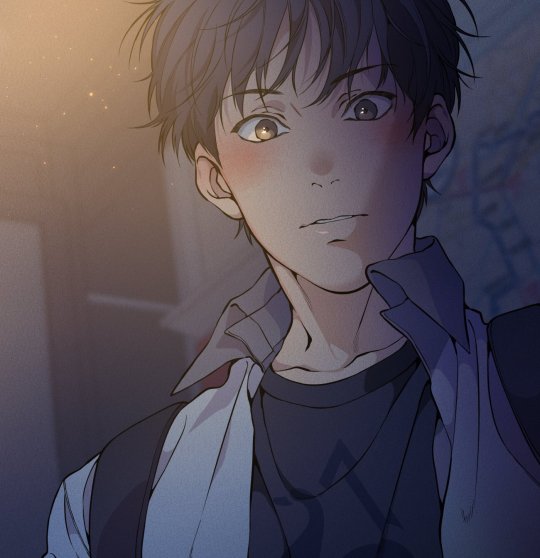
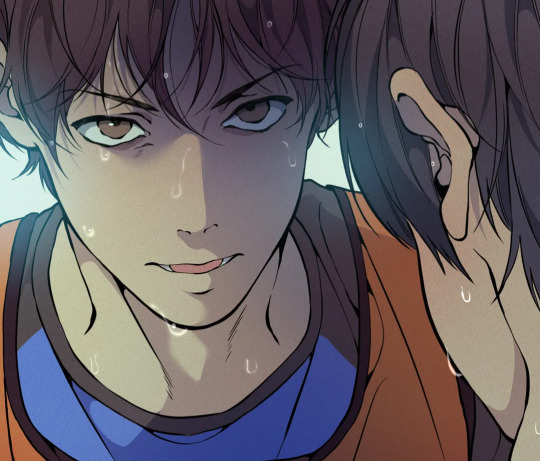
Cirrus is popular and best friends with Chan-il (Skylar’s crush). At first sight, Cirrus seems to be a kind and gentle person, always smiling politely, and surrounding himself with friends. That’s Skylar’s first impression of him at least, which is why he decides to trust him when he says he will keep Skylar’s ‘hobby’ a secret. But as the days go by, it becomes apparent that underneath the charm hides a wolf ready to attack!


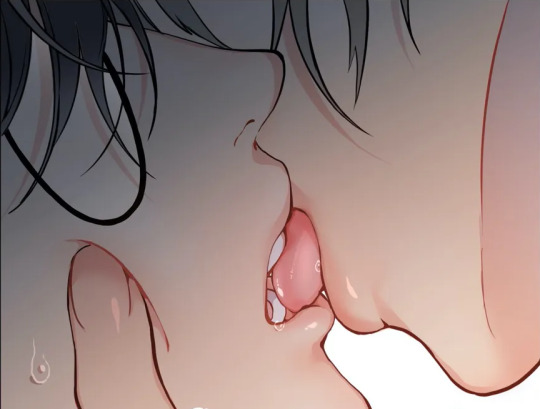
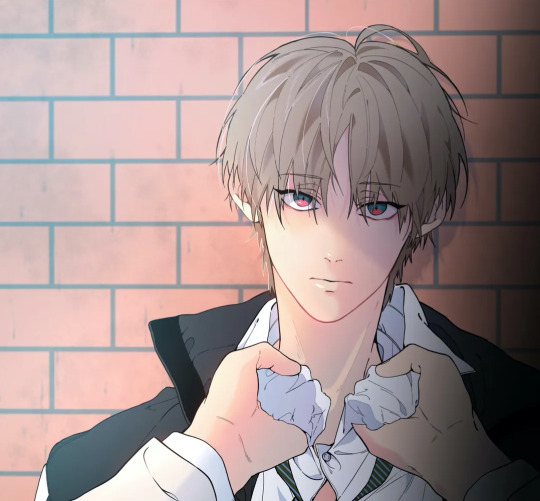
This is an ‘enemies to Iovers’ story and I am super excited to see how the relationship between the main characters will develop. The latest Korean chapters are very heavy as we learn more about Skylar’s dark past which is quite disturbing – chapter 33 even has a trigger warning!
It’s absolutely criminal how underrated this manhwa is, so I thought I would share it among those of you who may not have heard of it. Lezhin Comics is currently hosting a special event where you can read the first 4 episodes of <Lost in the Cloud> for FREE so this is the perfect time to jump into the series. You won’t regret it!!!
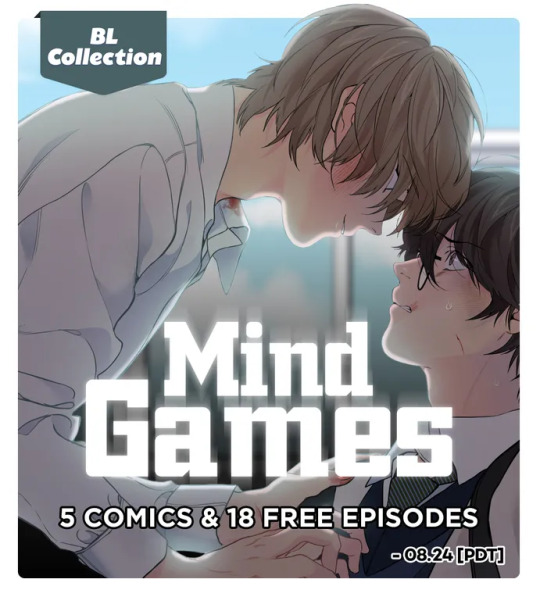
#lost in the cloud#painter of the night#potn#boys love#shounen ai#manhwa recommendation#lezhin#manhwa bl
164 notes
·
View notes
Text
A Study In Behavior: Chapter 1
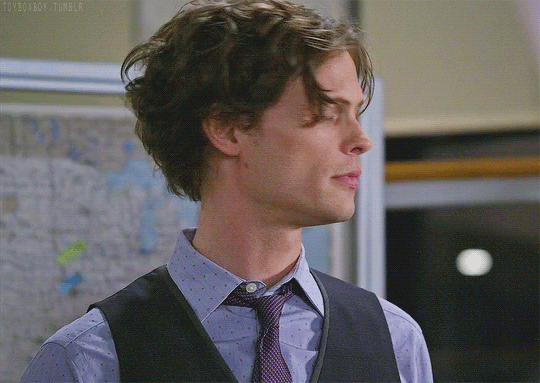
A Study In Behavior (Spencer Reid x Fem!Reader)
Chapter 1: Obsession
Rating: G
Word Count: 1.8K
Series Summary: When you signed up for Professor Reid’s class, you were expecting a low effort but interesting class to fill your psychology elective credit. Instead, your fascination with the professor leaves you spending more time than you’d expected in office hours.
Chapter Summary: A strange dream and an unusual professor make today’s lecture much more interesting than you thought it would be.
Warnings: teacher/student relationship, cursing, mentions of anxiety, suggestive language, implied age gap.
A/N: I’m planning on making this an eventual smut slow burn, since this is one of my favorite tropes and I want to make it a Realistic daydream lmao. This chapter is focused on introducing you to the world, reader, and this version of Spencer. Lots of potential here, I already have a million different ideas of how this should go... as always dms and asks are open!
~
The pattering of rain on the tin roof seemed to crescendo, a million drummers tapping out a perpetual drumroll on steel drums above your head. You’d always complained you couldn’t hear yourself think with all that noise, but you missed it despite yourself when you left Seattle for college. You were pulled away from that brief moment of self awareness by the touch of a cold hand, clutching yours as if you might be snatched away at any moment if the grip were to loosen.
You opened your eyes, finding yourself in a bed you knew all too well. A bed you’d spent too many hours in, slept too many nights in, and yet was not your own. Turning your head to the right, you took in the sight of your sleeping mother, her expression of serenity contradicted by the deep creases in her face, betraying the frown that she wore most of her waking life. Your gaze trailed down to your hand in hers; her knuckles were turning white from her tight grip, but you didn’t feel any pain.
Laying next to her, you watched her face for what felt like hours as her chest rose and fell in the lazy patterns of slumber, too afraid of waking her with your movement to breathe. She almost looked happy like this. Suddenly, your thoughts were interrupted by a loud beeping sound. You looked around for the offending fire alarm, but as you scanned the ceiling it began to dissolve before your eyes, the grip on your hand loosening until you broke free from the scene fully.
~
You opened your eyes with a start as you sat up quickly, feeling out of place in your own room. You were a painting placed in the wrong section of a museum, an unintentional imposter. Nails digging into your comforter, you tried in vain to slow your shallow breaths as you looked around wildly for something to remind you of where you were, of who you were.
Your eyes skipped from your stack of records from your childhood leaning casually against the wall beside the record player on your desk, to the stacks of books watching over you from the top of your bookshelf, unable to fit on the shelves but too close to your heart to part with. Your gaze finally settled on the floor, taking in the mess you’d been meaning to clean up for days now.
As you returned to your body, you could no longer ignore the blaring of your alarm, groaning as you reached for your phone on the nightstand. A glance at the screen had you shooting out of bed. Shit, I have to be at class in 20 minutes. You got up, muttering to yourself about how 8 A.M. classes should be considered cruel and unusual punishment, and maneuvered around your clothes strewn across the floor.
As you raced to your closet, your eyes scanned the clothes you owned, speeding through mental images of a million combinations before giving up and reaching for your comfort clothes. You pulled on the green high waisted cargo pants that you’d owned since high school. Nobody to impress in this class anyway, you reasoned, grabbing the fitted white crop top that your friend had embroidered your name on.
You tore through the apartment in the most violent and rushed performance of a morning routine the world had ever seen, only half trying to keep quiet for the sake of your neighbors. Hair tangled between your fingers and makeup was swiped on haphazardly as you struggled to make yourself presentable, cursing at the time and throwing random belongings in your bag.
Calling out a goodbye to your roommate only to be met with silence, you realized that in your frenzy you had forgotten that no sane college student would willingly be up at this hour. Shaking your head as you rushed out of your building, you mused that you’d just gotten all your stupid mistakes for today over with quite efficiently.
Three years of mediocre dorm experiences had left you desperate for a change, and luckily your now-roommate Jordan volunteered to split the rent for the 2 bedroom you now called home. You’d both agreed to ignore whatever ghost stories scared off previous residents and earned you a fair price for a decent place close to campus; ghosts would just add a little intrigue to your domestic life, you’d joked.
Checking the time once more, you cursed under your breath and broke out into a run. God, I should work out more, you thought as your lungs began to burn, I wouldn’t stand a chance in a zombie apocalypse. Racing through campus, you finally reached the doors of the lecture hall that held your class… which had started three minutes prior. You tried to catch your breath before opening the door, cringing as you heard the professor pause mid-lecture.
You tried not to meet anyone’s gaze as you quickly made your way to a seat. The first one you could find was in the third row-- close enough to the front to make out the facial expressions of your professor, who had continued his train of thought after you entered, choosing to ignore you in favor of finishing his idea.
As you got settled and tuned into the lecture, you realized the professor was still reviewing the syllabus. Pulling it up on your laptop, you looked at the top to remind yourself of his name: Dr. Spencer Reid. Finally looking up, your mind went blank. Oh. Not only was your professor way younger than you’d expected, he was... well, attractive. Thats’s a reasonable objective assessment, right? You knew he was just as knowledgeable as older professors-- you’d chosen this course for its fantastic reviews from previous students-- but his youth was a welcome change from the dinosaurs you were so used to in the neuroscience department.
As you studied him, you only became more sure in your original assessment; he was tall, with tousled brunet hair and a face that was… well, unfair. You weren’t surprised to catch a few other girls unabashedly staring at him, clearly drooling over the man as he spoke animatedly about his favorite parts of the course.
You shook yourself-- this man was your professor. You shouldn’t think about how attractive he is, it’s unprofessional. You also shouldn’t look at his hands the way you are right now, following them as he gestured along with his words you still weren’t paying attention to. You definitely shouldn’t think about what those hands could do.
Oh my god, snap out of it, you reprimanded yourself, you can’t afford to spend the semester fantasizing about your professor, focus on the class! You finally tuned in to the lecture, catching the end of what sounded like a tangent about the difference between triggers and stressors. For the rest of the class, you listened intently, drawn in by Professor Reid’s clear excitement about the topic.
Your efforts to ignore your professor’s appearance were somewhat successful, but as you listened to him speak passionately about the value of profiling as a tool for certain types of criminal investigations, you knew you were done for. His excitement about sharing his knowledge left you fighting back a smile, watching intently as he gestured wildly. You’d always liked listening to fellow nerds, eagerly basking in the pure delight beaming from their faces as they ranted about their subject of interest.
You sighed internally, preparing yourself for a semester of unreasonable dedication to this class, which was meant to be your chill psych elective to leave you more time to spend in the lab. It’s not like this topic wasn’t interesting to you, it was just that you weren’t expecting to be obsessed with it-- or more accurately, the man teaching it.
Before you knew it, the class was over. Professor Reid told everyone to finish the assigned reading by next class in preparation for a discussion, dismissing the class and walking over to his desk. You gathered up your belongings and the remnants of your dignity before slowly making your way to the exit, lost in thought about the overlap between your field and his.
Your feet changed course before you could stop to think about what you were doing. When you tuned back in, you were horrified to find that you were walking towards Professor Reid. Right when you were about to turn around and try to escape without further embarrassment, you were stopped by his curious but friendly gaze. Ignoring your inner voice’s screams of horror, you composed yourself and made your way over to his desk.
He spoke before you could, greeting you with a small smile and a polite “how can I help you?”
“Hi! Um, I just wanted to come apologize for being late today. I promise, it’s really unlike me, and I just don’t want you to think that I don’t care about your class or anything, because it seems really cool so far and I’m so interested in seeing how this could apply to my research and I was only really late because of this dream I had-”
You stopped before going into detail, saving yourself from your nervous rambling, and he spoke your name hesitantly. Your confusion must have been apparent on your face, because he looked at your chest, clearly having made the connection from the word embroidered on it. The devil on your shoulder whispered that his eyes had lingered there longer than they needed to, but you dismissed that thought quickly.
“There’s no need to apologize, as long as you don’t make a habit of it we should be fine,” he reassured you, “and judging from how well you paid attention today, I have no doubt you’ll more than make up for it next class in the discussion.”
You bit back a smile at his praise, shocked he’d noticed you at all. You thanked your lucky stars he’d interpreted your staring as interest in the class, rather than the glaring sign of attraction that it would easily be identified as in any other setting. You quickly nodded, thanking him for his understanding and promising it wouldn’t happen again before exchanging goodbyes as you turned and walked out of the room.
Bursting out of the lecture hall, you finally filled your lungs with air fully, trying to regain some sense of control over your feelings. As you walked to the library to study, your mind wandered back to Professor Reid. It’s not like he’d ever feel the same way, what’s the harm in a little daydreaming? You decided you could live with a harmless crush. Keeps things interesting, you thought. Stepping into your castle of books, you pushed the events of the morning to the back of your mind, but one thought lingered: This is going to be one hell of a semester.
#spencer reid fanfic#spencer reid imagine#spencer reid x reader#spencer reid#spencer reid smut#criminal minds fanfiction#criminal minds
48 notes
·
View notes
Text
David Oyelowo on 'Les Miserables,' Making Directorial Debut With Oprah Winfrey
The Emmy- and Globe-nominated actor, who directs 'The Water Man' with Winfrey as co-producer, also discusses taking on the most iconic and tragic antagonist in literature and not wanting to be "the token person of color" on the PBS series.
David Oyelowo has always been a fan of the Les Misérables musical, but it wasn't until he picked up Andrew Davies' script that the star — who's been Emmy- and Golden Globe-nominated for his work on HBO's Nightingale and in Ava DuVernay's Selma — fully appreciated the villainous Inspector Javert. "There was so much more depth and complexity to this character than I ever realized from any iteration I had seen," he says. Oyelowo, 43, spoke with THR about executive producing and starring on PBS' six-part Les Mis miniseries (which debuted April 14) and developing his directorial debut, The Water Man, a fantasy drama co-produced by Oprah Winfrey — "or Mum O, as I like to call her."
Javert is one of the most iconic and tragic antagonists in literature and theater. How did you key into his psychology?
One couldn't earn the way Javert comes to an end in such a dramatic, violent and self-inflicted way without a very clear runway and emotional, psychological and spiritual journey. The biggest clue to me was that he was born in prison to criminal parents, yet he is now a man who detests criminality to an obsessive degree. You go, "Well, it's fine to hate criminality, but to be so obsessed with Jean Valjean — what's going on there?" Victor Hugo actually based Jean Valjean and Javert on the same person, this gentleman he knew who had both sides within himself. To that extent, Javert transposed all the criminality he loathed in his own upbringing onto Valjean, and that justifies his obsessive pursuit of him. But when he recognizes that this man isn't just criminal, he is worthy of redemption, he is someone who somehow has been able to transcend his criminality; he realizes that this pursuit has been futile. The criminality that he loathes is still within himself, which is why he chooses to destroy himself.
Did you and Dominic West know each other before this?
We didn't know each other well. He's such a lovely guy and incredibly funny. I had to do as much as I could to stay away from him while we were shooting. For me, I need to inhabit and feel every tendril of the character, and I couldn't entertain the idea of being jokey-jokey with him and then go into the level of acrimony between us. There's such a cat-and-mouse element to Javert and Valjean's relationship that was so satisfying to play. As an actor, a lot of the time you are trying to find the subtext to a scene, to imbue it with interest. With this, it was absolutely inherent. These characters had so much history that was always present in every scene they had together. But we've become great friends ever since.
Was using the music from the stage adaptation ever a consideration?
It never was, no. We all discussed that if we're going to do this, there has to be a real reason why this should exist so soon after Tom Hooper's [2012] filmic musical. We wanted to make it a much dirtier, grittier, immediate, politically prescient version. Being a producer, I didn't want to be the token person of color within it. I was very clear that we need to have that be something organic and truthful to the time. We've done a terrible job of representing just how many people of color were inhabiting Europe at that time. And not just in subjugated roles. Anyone who's read Tom Reiss' The Black Count will know that Thomas Alexandre Dumas was a general in the French army in the late 1700s [one of the highest-ranking men of African descent ever in a European army]. So, it's not beyond the realm of possibility that Javert was indeed someone like me. You want people to see themselves onscreen.
I've read that you've specifically asked your reps to seek out roles where you might not be first in mind. For this miniseries, did your casting come first or did you initially come on as an executive producer? Did you feel like you had to fight for the role at all?
I signed on as an actor first. They approached me and I was actually the first person to be cast in it. But yes, what you mentioned is absolutely true. Early on in my career I felt the need to say to my representatives, “Put me out for roles that are not race specific.” Because the truth of the matter was, the more interesting roles were inherently going to white actors. I am just so elated to now be going into a phase of my career where I am being approached with those kind of roles. It's not something necessarily I'm going to seek out. So yeah, Les Mis is something I was approached with, and that is incredibly gratifying because a decade ago, 15 years ago, I just don't know if that would have been the case.
As an EP on the series, was there a time where you felt like you had to take off your actor hat and fix a problem? Or did you feel like it was generally smooth sailing throughout the shoot?
It was pretty much smooth sailing. Tom Shankland, our director, had such a handle on the piece. You couldn't ask him a single question that he didn't have an answer for both on the basis of the script and the book itself. I was so impressed by him. Our producer Chris Carey also was just a monster when it came to making everything work in a beautiful way. For me, my primary function was just keeping on it when it came to representation within the piece. I think that is when sometimes things slip within the cracks. We all go to the movies and watch TV in the hope of seeing ourselves represented. We all have bias, we all lean into things that are more akin to our own experience. And of course, I have a bias toward seeing people of color in something like this. So it was very helpful, I think, to have me around to say, "Guys, let's remember the nature of the piece we're doing. We need more extras of color here. Let's not forget what we're trying to do here." Some of the development of the script I was very much a part of, and then a lot of the distribution and the marketing and the release dates and all that kind of stuff. Postproduction is a big side of getting a six-hour piece to be its best self. I got my hands quite dirty with that process as well.
This spring, your slate is pretty packed in addition to Les Mis. You had Relive debut at Sundance, you're in production on Peter Rabbit 2, and you have Come Away and Chaos Walking in post. How are you doing?
It's a very, very good question. I literally was in Sydney doing Peter Rabbit. We then went to London last week, and I'm now here in New York. Then, I leave here to go into preproduction on my directorial debut, The Water Man, in about three days. I have an incredible wife who makes it all work. We actually run our production company together. We have four children and they are with me a lot of the time. We scheduled the shoot for The Water Man over the summer holidays so that they can be with me. I really, really love what I get to do, and I don't take it for granted at all. I'm just trying to have as much fun and tell as many great stories as I can, while I can. But my wife and I have a two-week rule. We're never apart for more than two weeks, and so that means a lot of flying, and a lot of crazy scheduling.
You must have a lot of frequent flyer miles.
I have an enormous amount. So if you ever have any trips that you're planning, please hit me up because I have plenty.
Why did you select The Water Man for your directorial debut?
I was looking for a film that was akin to the ones I loved growing up — E.T. or Close Encounters of the Third Kind or films like The NeverEnding Story, Labyrinth, The Goonies. They don't have to be $200 million extravaganzas, but they can have a fantasy element and be grounded in realism and truth with poignant themes. This script by Emma Needell was on the Black List. I fought hard and thankfully got it, and myself and Oprah Winfrey — or "Mum O," as I like to call her — came on as producers to develop it. Another director was going to direct it, but he fell out. My fellow producers turned to me and said, "Well, you've been working on this passionately for five years. Do you want to do it?" I took two weeks to really mull that over.
What was the deciding factor in those two weeks that made you say, "Yes, I will; I’m ready"?
Realizing that I was passionate enough about the story to dedicate as much time to making a film as is necessary. And the fact that the story is just so moving to me. It's about an 11-year-old boy who's on the hunt for a mythical figure who he believes can save his mother from an illness. I also love the fact that it is an adventure movie. Basically, this boy teams up with this girl and they go into a forest hunting for this mythical figure called “the Water Man.” So it has elements of Stand by Me and Pan's Labyrinth, both films I deeply love. I'm always looking for opportunities to scare myself, and this is the most dramatic example of that I have had in my career thus far. So I jumped in.
Was there ever a seed earlier on where directing first sprouted in your mind?
Very early on. It's something I've always wanted to do. I remember seeing Kenneth Branagh's Henry V and that being one of the earliest moments. I thought, “Whoa. That guy directed that and is in it. How on Earth is that possible?" And then he did it again with Hamlet. I think the seed just kept on being replanted of the idea of doing it one day. So when the opportunity presented itself, it had been long gestating.
https://www.hollywoodreporter.com/news/david-oyelowo-les-miserables-making-directorial-debut-oprah-1213657
2 notes
·
View notes
Text
#3: Self doubt and constitutional psychology
The scientific theory I am most personally afraid of is, without a doubt, William Herbert Sheldon’s theory of constitutional psychology.
This is a theory that states that all human bodies have a certain mix of characteristics from the three main somatotypes (also developed by Sheldon): ectomorphic, mesophorphic, and endomorphic. These are concepts that are familiar to many people already, but what is lesser known is how Sheldon had originally hoped to expand on the application of this typology.
In this theory of constitutional psychology, Sheldon believed that a person’s personality, intelligence, and potential for achievement could also determined by the prevalence of characteristics from each body type. Sort of like a fucked up form of astrology, Sheldon believed that your genetics determined your potential, and that these high or low potential traits would be reflected in your physical form.
In other words: my nightmare.
I grew up with a passionate interest in biology, as well as a family that I hated. This has left me absolutely terrified of the former camp of the nature vs. nurture debate for many, many years. In short, while I would strongly prefer to take the side of nurture, I feel far more strongly that it is nature that determines our ultimate outcome in life. I believe this pathologically—even if I were to be presented with sufficient evidence to prove one’s temperament and success is 100% based on nurture I think I may still struggle to believe it. As you will read below, my pathologic belief in nature as the ultimate determinant extends so far that the dark parts of my brain are happy to consider long de-bunked pseudoscience if it will affirm my beliefs: that I am destined to end up just like my genetic make-up determines, and that my genetic make-up determines I must be unsuccessful, fat, and worthless.
And, in my defense, it should be said that the trajectory of my life has done very little to paint a different picture, despite my best efforts. Despite being fervently against weight gain and terrified of it since the age of 7, I am now sitting at a BMI of 32. Despite being terrified of becoming an alcoholic and an addict like my father’s line, I am now on day 3 of a thus-far unsuccessful re-attempt at sobriety. Despite being obsessed with the idea of having a successful career, I am—as I most feared—a middle grade graduate of a low-tier state school with absolutely zero accolades or even a significant CV.
Because, it would seem, that simply thinking something does not make it true. My mind was nurtured to fear weight gain, but my body craved food and made me ate. My mind was nurtured to fear alcohol addiction, but my body latched onto it as soon as it touched my lips. My mind craved a successful career, but my body—the whole of it, its entirety and complexity in time and space—maneuvered according to his genetic make-up, pulling me out of range of opportunities, confusing my efforts, and dissolving my discipline in the moments I needed it most.
Were this a true debate about nature vs. nurture, one may point out rightly that it is only natural that I end up like my parents regardless, since they are the source of both my nature and my nurture. But this is incorrect.
It should be said, I have two parents. I hated both of them, but they were very different from one another.
My mother was a disciplinarian and a bit narcissistic. She had a strong “go getter” attitude, working her way up from a secretary position to director of her department over the course of about 15 years, while working in her spare time to fix up our house and flip others. She was aggressive and highly critical, both of herself and of those around her. My mother was a “winner” by all accounts—she certainly did not win friends or admirers, but she got what she wanted: power, influence, and money. She didn’t need friends or family, she just needed a nice material life, and she got one.
My father, on the other hand, desperately wanted to be a “free spirit”—he loved art and music and had long standing dreams of wanting to be an artist himself. However, he never quite had the creative drive for it. My father was fun to be around, a great story teller, very full of love for everyone around him. He was also horribly addicted to pills, extremely overweight, and very sick. He could be cruel and had a horrible temper, throwing things or screaming at my mother in public when she said something that hurt his pride. He was obsessed with the image of himself, and he hated the image of himself at the same time, making him miserable. He was depressed, he was lazy. He would not shower for days. He died of a drug overdose, during a brief period where neither my mother nor I were speaking with him. My bright, optimistic, sociable father who loved art and culture more than anything and wanted nothing more in the world than to be loved and admired by others died alone in a bed watching cable TV and being hated by his own family. Less than 10 people attended his funeral.
And I look just like him.
I have my father’s eyes, and also my father’s talent for foreign language, storytelling ability, and creative capacity without creative inspiration.
I have my father’s cheek bones, and also my father’s habit of midnight snacking and secret smoking.
I have my father’s short legs, and also my father’s pathologic inability to take care of himself, brush his teeth, shower, or otherwise even do any of the basic things one is required to do.
I have my father’s hair, and also my father’s fear of mediocrity, delusions of grandeur, and notable lack of discipline in actual pursuits of achievement.
I have my father’s hands; do I also share my father’s destiny because of it?
Sheldon’s theory of constitutional physiology was as one would expect. Those with an endomorphic body—i.e. fat or flabby—were said to have characteristics of “viscerotonia”. Viscerotonia was characterized by a deep love of comfort and food, laziness, slow reaction times. They were also believed to be affectionate and even-tempered.
The mesomorphs—i.e. muscular and stout—were said to have characteristics of “somatotonia”; love of physical adventure, frequent risk taking, aggressiveness and courageousness were all associated. Famously Sheldon believed that the majority of criminal types were of the mesomorph body type.
And finally, the ectomorphs-- naturally tall, thin, and delicate. According to Sheldon, they were characterized by “cerebrotonia”—intellectual, introverted, and sensitive, and prone to a more graceful and dignified nature.
A part of me does not want to give any of this even the slightest thought. Sheldon and his cohort were famous for their racism, particularly in the related field of phrenology. These theories have been disproven hundreds of times in a hundred different ways. There is no debate.
Yet somehow, when I search down to my bones, I cannot help but fear there is some truth to it.
Or, at the very least, even if there weren’t any truth to it, our society has certainly made it so.
Even on a platform like this the stereotype is rampant. I find even myself guilty of it more often than not, especially in the realm of fandom. Muscular characters are aggressive, fat characters are kind and understanding, thin characters are aloof and intellectual. I repeat these stereotypes to myself over and over and over again. I consciously want to combat them but, when it comes to enjoying media, I find anything other than the stereotype to lack a certain verisimilitude.
That upsets me, that I do that.
To others and to myself.
For most of my undergraduate education I was not taken seriously as a scientist, despite my significantly above average performance and passion for the subject. I was denied letters of recommendation because I did not “seem the type”. And I am still not taken seriously by friends, relatives, or colleagues in my post graduate pursuits I wonder sometimes—if I had been thinner, if I had been more of the ectomorph variety, if I had looked more like a Sherlock than a Watson, would I be more successful?
The upsetting answer is probably.
But how much does that reflect on my actual talent and capability? Even if society would be more likely to view me a certain way if I looked a certain way, what does that say for my actual potential?
Though, really, what is the difference?
Is potential still potential if it does not have the potential to be used?
0 notes
Photo

How do you become a writer? Here’s the essential advice that every writer needs to hear as they set out on their writing journey. • Write. And then write some more. If you write, you’re a writer. So write. The more you exercise your writing muscles, the easier it will feel and the better you will do it. Write about anything that takes your fancy. Write about it at length. Write for the pleasure of writing. But above all, keep writing. • Cross it all out and start again. The more able you are to look at your work and see that it’s not as good as you want it to be, the better a writer you will be in the long term. Put your heart and soul into your work and then be prepared to delete every single word of it and start again. And again. And again. Until you get it right. In the short term, it will hurt like crazy. In the long term, it will give you an editor’s eye, and that will make you a better writer. • Read and read and read and read. And then read some more. Every time you pick up a book by another writer and immerse yourself in the world they 've created and the language they’ve used to create it, you are not just reading for pleasure. You will be learning things that will affect your own writing. Read widely. As widely as you can. Leave your chosen genre behind and explore the vast treasury of books out there. Every writer you read will have something to teach you. It may be about plot, or atmosphere, or how to create a scene, or how to use words. It may be about how to create suspense. It may be a lesson in what you don't want to write yourself. And reading the great writers will inspire you to reach for the stars in your own work, even if you’re realistic enough to know you’ll never be the next Virginia Woolf or Dylan Thomas. • Write about something that makes you want to write. Have you ever met a writer who wasn’t passionate? About writing, about what they’re writing about, about the subject they’re currently researching, about the new thing they’ve just heard of that they need to find out all about? If you write about something that you love and that fires you up, that enthusiasm will bring your writing to life. The best music writers love music. The best sports writers are obsessed with sport. The best crime writers are fascinated with criminal psychology. You can’t write about nothing – well, you could, but it would probably be limiting – so find something you really want to write about, and write it. • Be curious. Writers are interested in everything that might feed into their writing. Be the sort of person who asks ‘why’ and ‘how’ and ‘who’ and wants to know the answers. Good writing is full of insight, even when it wears its knowledge lightly. • Experiment with different kinds of writing. You think you want to write poetry but you’re fascinated by dialogue, so why not try a script? If your short stories have become formulaic, why not think about the challenge of a novel? Maybe that novel you started hasn’t come to life because you’d be better writing a non-fiction book, or articles. But if you don’t try, you’ll never know where your voice best comes to life. And there’s never any harm in having more than one writing style. You may find you can express yourself in different ways though different media. Don’t get stuck in a rut – try everything to see how your writing voice works. • Write for yourself but remember your reader, even if it’s only an imaginary reader. Write what you want to write because you want to write it, but remember that one day it might have a reader, and that reader will need to understand what you've written, and where they are in the landscape you have created. Don’t assume readers know what you’re trying to say. Read everything back to make sure you haven’t inadvertently forgotten to explain something vital, or left any plotholes for a reader to fall into. Keeping your (imaginary) reader in mind will give you a reality check as you write. • Take the work seriously – but don’t take yourself seriously. The work is important, we get that. And it’s amazing that you’re doing something creative and quite possibly ambitious, and that needs to be acknowledged. But the more modest you are, and the more open, the more likely you are to be engaged with new ideas and looking for ways to improve what you’re doing. It's good to be able to admit when we've made a mistake, or could do something better, and to laugh at ourselves and then try harder. All of us, no matter how successful we may be and how many times we’ve seen our names in print, can always be better writers. • Remember the difference between talent and skill. Talent is what brought you to the page in the first place. A way with words, a creative imagination, the ability and desire to use language to create worlds. Skill is what happens when raw talent is combined with the application of knowledge. And practice. At this point, you can start thinking of writing as your craft. If you’re truly gifted with talent, you might even get as far as art, but for most of us, craft will do nicely. • Take your craft seriously enough to learn it properly. Skilled craftsmen and women create beautiful things, and this is as true of writing as it is of woodwork. Craftsmen traditionally undertook apprenticeships to learn the skills of their craft, and writers need to bear this in mind too. There are many ways of learning to write, whether it’s a creative writing course, or journalism training, or teaching yourself, or reading books and articles. But true writers will always want to learn the best ways to unlock their talents. • Remember you can always learn something new about writing. No-one ever knows everything. The moment you get complacent and think you know all you need to know about writing, it will show in your work. The best writers are always learning new things and setting themselves new challenges to keep their writing fresh. • Believe in your writing. Because you need to. There are times when it is very hard to be a writer. When no-one wants to read what you’ve written. When no-one wants to publish you. When you can’t make that wretched chapter do what you want it to do. When your characters won’t stick and you can’t work out why. These dispiriting times seem endless but they are part of the writing life, and if you believe in what you are writing, and in yourself as a writer, you will get through them, and onto the next page of your writing life. • Write because you love writing, and you love what you’re writing about. Not only can it be hard to be a writer, but writing can be hard. The best reason to write, and the one that will see you through, is to write for the love of it. Write because a bit of your soul will curl up and die unless you put some words on a page. Write because if you don't, your day will be incomplete and you will be unfulfilled. Write because writing is the way you make sense of the world. … and finally… Write because you cannot write. Write because you are a writer.
3 notes
·
View notes